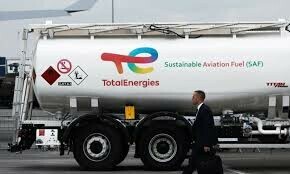
HYDERABAD: Representatives and leaders of farmers’ organisations have dismissed the federal budget as ‘disappointing’ and harmful for agricultural sector.
Workers say it offers them nothing, leaders of nationalist parties are criticising it for proposing allocations for ‘controversial’ water projects and traders say that one per cent reduction in GST will not yield any positive result.
“I find nothing in it for agriculture, which is the country’s largest sector. The federal finance minister talked about increasing the tax base but did not spell out means to increase productivity,” Sindh Abadgar Board president Abdul Majeed Nizamani said.
He observed that the budget’s thrust was on expanding tax net but it said nothing about ways of checking tax evasion of Rs840 billion and under-or over-invoicing.
“The GST on agricultural inputs and goods will result in an estimated Rs245 billion annual loss in production. Withdrawal of subsidy on inputs will adversely affect production and growers will reduce or stop using urea and other fertilisers,” he said.
According to him, the GST on six million tons of urea and two million tons of DAP used will amount to Rs25.5 billion and Rs27.036 billion, on other fertilizers Rs12.75 billion, on pesticides Rs4.76 billion.
“Overall collection of GST will come to Rs223 billion but the minister says the government will get only Rs105 billion. The figure is confusing when we compare it with our calculations,” he said.
If the government did not withdraw its decision about withdrawal of subsidy, the productivity would suffer a loss of Rs245 billion per year, he said.
The president of the Sindh Chamber of Agriculture, Dr Nadeem Qamar, termed the GST a serious blow to agriculture. “It will erode the growers’ purchasing power and make them unable to use inputs to increase crop yield.
“We had suggested to the government to keep GST at four per cent for the sake of a gradual absorption of the new tax but instead we are slapped with 17 per cent GST,” he said.
He criticised the government for ignoring water conservation schemes, like lining of watercourses and drip irrigation system.
Qamoos Gul Khattak, secretary general of the Muttahida Labour Federation, said that workers were not getting even the minimum wages of Rs7,000 announced last year while inflation was soaring. The withdrawal of subsidy will cause more hardship to poor workers.
National Labour Federation’s Rana Mehmood Ali Khan rejected the budget as anti-worker. “15 per cent raise for government employees is insufficient and minimum wages should be fixed at Rs10,000,” he said. EOBI’s pension should be raised to Rs5,000 from Rs3,000.
The president of Hyderabad Chamber of Commerce and Industry Goharullah criticised the government for its failure to formulate policies to overcome energy crisis which had scuttled industrial production.
Industrial zones should be set up with proper infrastructure under the annual development programme, he said. He termed reduction of one per cent in GST a positive step.
Awami Tehrik president Ayaz Latif Palejo described the budget as a jugglery of figures and said the one per cent reduction in GST ridiculous. Health and education got a combined increase of Rs40 billion while defence expenditure had been upped by 12 per cent.
He criticised the allocation of Rs18 billion for Bhasha dam despite Sindh’s opposition to any water project on the Indus upstream.
Sindh Tarraqi Pasand Party chairman Dr Qadir Magsi said the budget demonstrated that the government’s priority was to fleece people.
“Even a cursory look at the document indicates that people are irrelevant. Withdrawal of subsidy of Rs229 billion for Utility Stores Corporation proves that the government is set to unleash a price hike,” he said.
He condemned allocation of Rs4 billion for projects like Bhasha, Satpara and Gomalzam dams and Greater Thal Canal. “This allocation shows that the government has finalised arrangements for complete destruction of Sindh’s agriculture,” he said.
He said the revenue collection target was too ambitious for a government which was mired in maladministrative and corruption.














































Dear visitor, the comments section is undergoing an overhaul and will return soon.